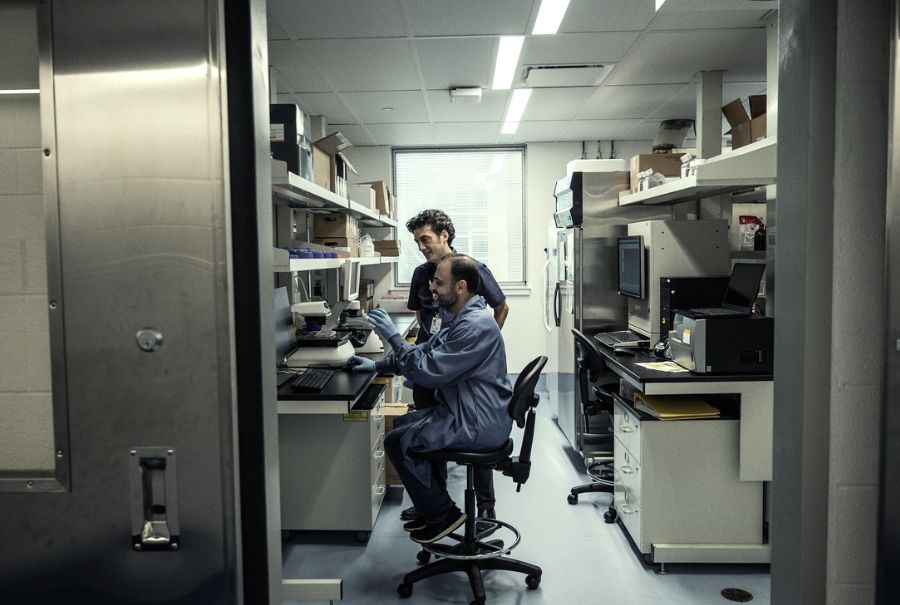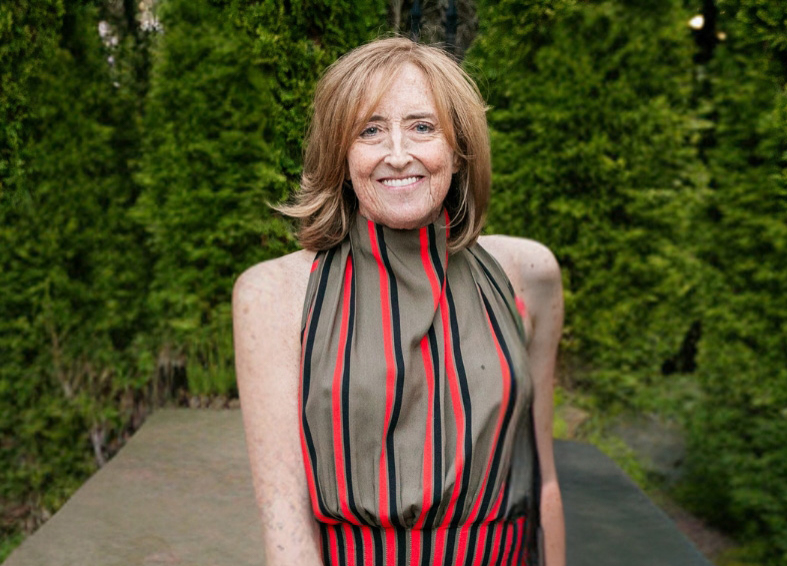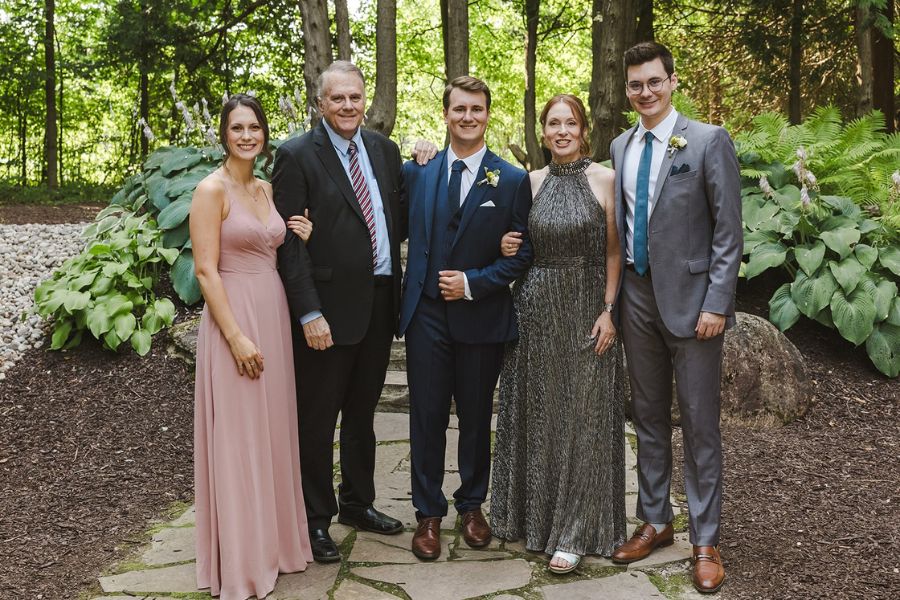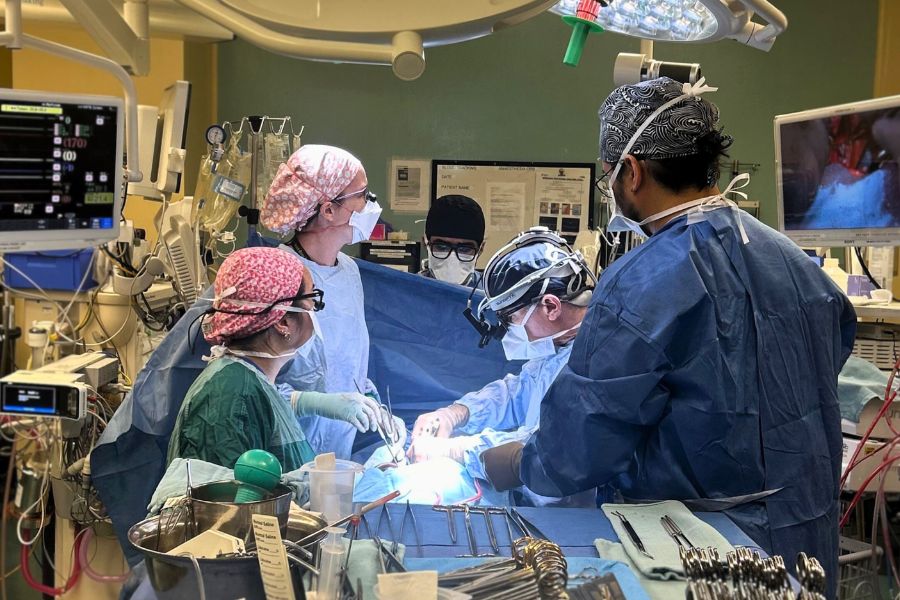
From Lynn Francis’s first donor experiences with UHN’s liver program, it was clear that the team was exceptional, and she was inspired to do what she could to support them. With her first gift two decades ago to her most recent contribution this year, she has remained focused on one thing: empowering that team to build capacity and grow.
At the time, the small-but-mighty team had three hepatologists and a small group of researchers and allied health professionals. Today, UHN’s liver program is an international research, care and education powerhouse with a team that has grown ten-fold, including nurses, researchers, students, transplant specialists and ten hepatologists. The Toronto Centre for Liver Disease (TCLD) is the largest and most comprehensive medical program in liver disease in Canada, and one of the top programs of its kind in the world. The team within the TCLD’s Francis Family Liver Clinic conduct more than 30,000 patient visits each year, providing all-encompassing care from initial diagnosis through to liver transplantation.
The growth of this exceptional program has been a shared journey, uniting the dedication and advocacy of researchers, care providers and patients and donors like Lynn.
Inspired support for an incredible team
Lynn has lived with a rare autoimmune liver disease since her diagnosis at the age of 21. As a UHN patient, she was under the care of Dr. Jenny Heathcote, a world-renowned clinician and researcher who made important contributions to our understanding of autoimmune liver diseases and viral hepatitis. Dr. Heathcote had built an incredible liver research program at UHN, but with her retirement fast approaching, Lynn wanted to do something to make sure that the team would have the resources to continue to build on Dr. Heathcote’s exceptional body of work.
“In the very beginning, when we began donating, the department had an abundance of talented individuals and amazing research capacity, but didn’t have steady funding,” Lynn says.
Lynn attributes the lack of resources for liver research to the significant stigma that surrounds liver disease – something that she has faced in her own life. There are more than 100 types of liver disease, and they are caused by a variety of factors including genetics, viruses, toxins, metabolic disease, alcohol and unknown causes. Just like other diseases like heart or kidney disease, liver diseases are the result of a complex interplay of factors, many of which are beyond any individual’s control. But unlike diseases affecting other organs, people with liver disease often face significant stigma. A 2022 study by the British Liver Trust found that 73% of people surveyed reported experiencing stigma because of their condition.
The same stigma faced by people with liver disease also translated to less funds raised for liver disease researchers, including the exceptional team in UHN’s liver program. Lynn recognized that the team was running up against barriers preventing them from getting funding equal to their exceptional expertise. She says. “I rebelled against it. I didn’t feel that was fair, because of my situation.”
That led Lynn to establish the Francis Family/Dr. Jenny Heathcote Chair in Liver Research, honouring Dr. Heathcote’s legacy, while empowering the next great researchers to lead. Chairs such as these are a significant honour, and provide researchers and clinicians with funding that they can direct towards their top priorities – especially visionary projects that are challenging to fund through other means like grants. Lynn saw it as a way to support great researchers to do their best work, and which could help attract others to join the team.
“Lynn’s willingness to attach her name to her many gifts has inspired others to do so,” says Dr. Jordan Feld, Director of the Toronto Centre for Liver Disease and Research Director of the Francis Family Liver Clinic. “It has helped to destigmatize liver disease, which is so important to all the people we care for living with chronic liver disease, and has inspired other people to give. Just knowing that someone else is already giving has been an important driver for many donors.”

Building for impact across the full spectrum of liver disease
With an organ as complex as the liver, answers don’t come quickly. To Lynn, planning for the long term has been at the core of her giving; it has been about believing in a group of people, and sustainably building the team’s capacity. She says, “To me, the metric of success is not producing something quickly, but that they’re building a team that can do amazing work.”
Discoveries don’t happen in isolation, and liver researchers and clinicians work across numerous specialities. Often, discoveries in one area of liver disease lead to new insights about the liver as a whole, and drive forward new research in entirely different types of liver disease.
While Lynn was inspired to donate by her own experience with a rare autoimmune liver disease, it was important to her to give to liver research as a whole – and listen to the liver program team about where her support could have the biggest impact.
“Lynn has always asked us what it is that we need to grow our program,” says Dr. Feld. “Her consistent support, year after year, has allowed our program to grow in ways that we could not even have imagined a few decades ago.”
This has spanned support for clinical care – including establishing the Francis Family Liver Clinic, the Toronto Centre for Liver Disease’s clinical hub – education through the Francis Family Fellowship in Liver Research, and research across the full spectrum of liver disease, from the rarest to the most common.
That same philosophy was behind Lynn and her family’s most recent gift to establish the Francis Lecker Family Chair for Innovation in Clinical Liver Research and the Clinical Research Innovation fund – both focused on helping grow the liver program’s clinical research capabilities. Clinical research is research that involves patients, and is an essential stage in evaluating potential new treatments and gaining real-world insights into disease presentation and progression.
The liver program team is grateful for this latest gift, which will bridge the gap between the lab and the bedside – accelerating discovery, creating a state-of-the-art research biobank and fast-tracking the development of potential new treatments. The new Chair will enable the team to recruit a globally-leading clinical research expert to develop an enhanced clinical research program, seizing on the growing momentum of UHN’s Canada Leads 100 Challenge.
“Lynn’s support for clinical research will align with our existing excellent laboratory-based translational research program to allow us to really go from clinic to lab and back to the clinic,” says Dr. Feld. “We have the infrastructure and resources to do incredibly impactful work.”
As a champion for the liver program when the team needed it most, Lynn, her family and other generous donors helped the liver program grow its international leadership and continue to drive discoveries and improve patient care across the full spectrum of liver disease. The liver program will continue to grow in the years ahead, finding new treatments for all types of liver disease – and leaving stigma behind.

No one ever changed the world on their own but when the bright minds at UHN work together with donors we can redefine the world of health care together.


